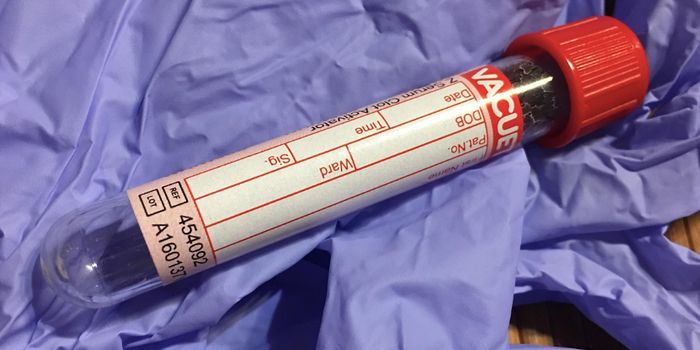Can a Blood Test Guide Prognosis for Traumatic Brain Injury?
Jim had been skateboarding since he was seven years old and spent hours a day practicing. He had been in local competitions and was well versed in both freestyle and vert skating styles. He wasn’t a professional by any means but was certainly no amateur. Having just received a new skateboard for his birthday, Jim decided to try it out on the halfpipe at a skatepark nearby. He positioned the tail of his board on the coping of the halfpipe. Leaning forward, he bent his legs to acquire momentum. Suddenly the back wheels of the board came to a grinding halt during the descent as they encountered a piece of debris. Jim went forward, but his board didn’t, and his head violently hit the flat bottom below. After regaining consciousness, Jim arose dizzy and disoriented, complaining of headache and nausea. Over the next few days, these symptoms improved; however, he noticed memory issues and speech difficulty for the weeks following the incident. His doctor discussed the importance of rest before returning to regular activity and prescribed him an individualized therapy program. Within a few months, he was back to his pre-injury functioning. Indeed, Jim was lucky.
Traumatic Brain Injury or TBI can impact patients of all ages. They are a significant cause of death and disability, resulting in various short and long-term health consequences. It is estimated that 166 TBIs occur every day in the United States. Recovery from TBI is highly individualized, and the prognosis can be difficult to predict. Many factors such as age and additional injuries play into how well a patient will do, and often only time will tell the outcome.
Dr. Neil Graham and colleagues at Imperial College London have been investigating the use of a sensitive biomarker known as neurofilament light protein (NfL) that can diagnose TBI and predict clinical outcomes. The results of this large multicenter study published September 2021 revealed that plasma levels of NfL increase after a TBI relative to controls and correlate with neuroimaging findings of axonal injury. Increased levels of NfL following TBI have been demonstrated in earlier meta-analyses of published case-control studies. However, in this more recent study, NfL levels were also the most powerful predictor of functional prognosis at one year.
The results of this study are promising and point to the potential for healthcare providers to deliver targeted interventions for specific types of TBI. This focused intervention delivery system could improve the outlook for those who have experienced TBI resulting in axonal damage and significantly reduce long-term disability resulting from TBI.
Source: CDC, Medicine, Science Translational Medicine









